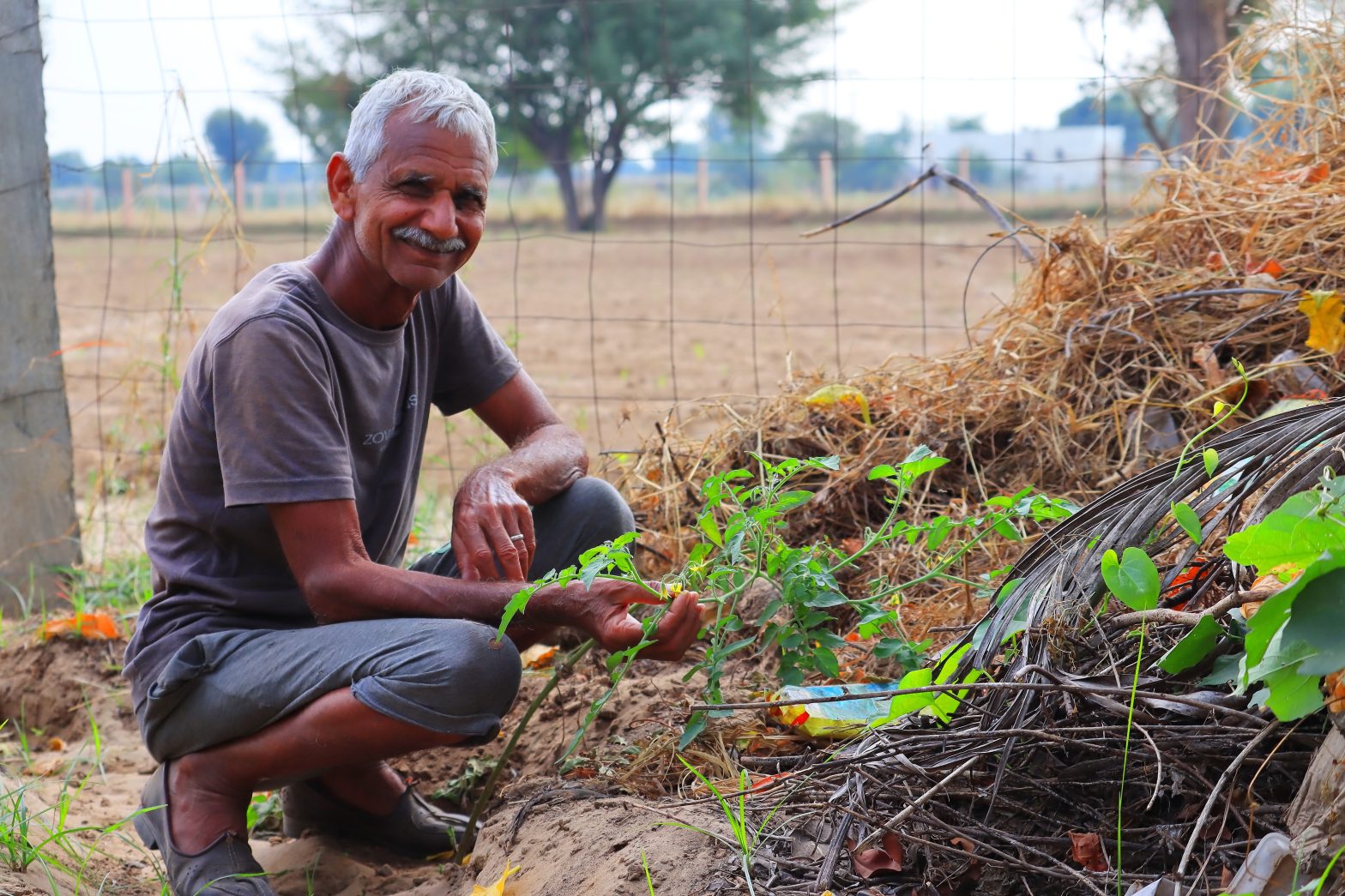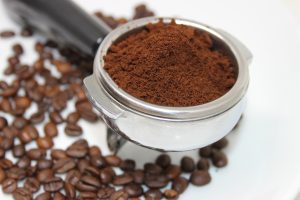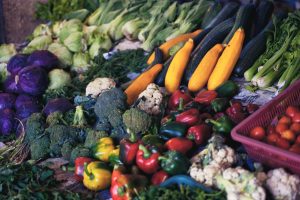Have you ever wondered what to do with all those kitchen scraps that often end up in the trash? Well, fret no more! In this article, you’ll discover five kitchen scraps that can be easily transformed into garden gold. Whether you’re a seasoned gardener or just starting out, these simple tips will help you make the most of your kitchen waste while giving a boost to your garden. So, grab your gardening gloves and get ready to turn those scraps into nutrient-rich soil and thriving plants.
Banana Peels
Fertilizer for Plants
Banana peels are a great source of nutrients for your plants. They contain potassium, phosphorus, and calcium, which are essential for healthy plant growth. To use banana peels as fertilizer, simply chop them up into small pieces and bury them a few inches deep in the soil around your plants. As the peel breaks down, it will release these nutrients into the soil, providing a natural and eco-friendly way to feed your plants.
Compost Ingredient
Adding banana peels to your compost pile is a fantastic way to enhance the nutrient content of your compost. Composting is the process of breaking down organic matter into nutrient-rich soil. Banana peels are rich in organic matter and will introduce valuable nutrients to your compost, such as nitrogen and potassium. Chop or blend the banana peels before adding them to your compost bin, as this will speed up the decomposition process and ensure they integrate well with the other materials.
Natural Pest Repellent
Banana peels can also be used as a natural pest repellent in your garden. Certain pests, such as aphids and ants, are deterred by the smell of banana peels. Simply place small pieces of banana peel around the base of your plants to keep these pests at bay. This method is completely safe and chemical-free, making it a great option for those who prefer organic gardening practices. Plus, it’s a wonderful way to repurpose your banana peels instead of tossing them in the trash!
Coffee Grounds
Plant Fertilizer
Coffee grounds are a fantastic source of nitrogen, which is an essential nutrient for plant growth. Nitrogen helps to promote healthy foliage and vibrant green leaves. To use coffee grounds as a plant fertilizer, mix them into the top layer of soil around your plants. This will gradually release the nitrogen into the soil, providing a slow and steady supply of nutrients. However, it’s important not to overdo it with coffee grounds, as too much nitrogen can harm plants. So, use them in moderation and mix them with other organic materials for best results.
Compost Additive
Coffee grounds are also an excellent additive for your compost pile. They are considered a “green” or nitrogen-rich material, which helps to balance the carbon-to-nitrogen ratio in your compost. This ratio is critical for proper decomposition and the production of nutrient-rich compost. Make sure to spread out the coffee grounds in your compost bin to prevent clumping and to encourage even decomposition. The coffee grounds will add valuable organic matter and nutrients to your compost, resulting in nutrient-dense soil for your garden.
Raised Bed Soil Amendment
If you have raised beds in your garden, coffee grounds can be a beneficial soil amendment. Raised beds often need to be enriched with organic matter and nutrients to support healthy plant growth. Coffee grounds can be mixed into the existing soil of your raised beds to increase its fertility. Their high nitrogen content helps plants establish strong roots and thrive in the confined space of a raised bed. Remember to incorporate the coffee grounds evenly into the soil and avoid excessive use, as moderation is key when amending soil.
Eggshells
Calcium Boost for Plants
Eggshells are an excellent source of calcium, which is crucial for plant health. Calcium helps to promote strong cell walls and prevent diseases like blossom end rot in plants. To use eggshells as a calcium boost for your plants, crush them into small pieces and mix them into the soil around the base of your plants. The shells will gradually break down and release calcium into the soil, providing a natural and easily accessible source of this vital nutrient.
Seedling Starter Pots
Eggshells can also serve as seedling starter pots for your baby plants. The shells are biodegradable and can be filled with potting soil and seeds. The shell provides a protective casing for the seedlings, and once they outgrow the shell, you can transplant them directly into the soil, shell and all. This method reduces transplant shock and provides the seedlings with an extra calcium boost from the shell. It’s a fun and sustainable way to start your plants from seeds and make use of kitchen scraps.
Compost Ingredient
Like other organic materials, eggshells can be added to your compost pile to enrich the soil. Their high calcium content not only benefits your plants but also contributes to the overall nutrient profile of your compost. Crush the eggshells before adding them to your compost bin to speed up the decomposition process and create a smoother, more consistent texture in your finished compost. Remember to include a variety of organic materials in your compost to ensure a balanced mixture and rich compost production.
Vegetable Scraps
DIY Vegetable Stock
Vegetable scraps can be used to create your very own homemade vegetable stock. Instead of throwing away leftover vegetable peelings, such as onion skins, carrot tops, and celery leaves, save them in a container in your freezer. Once you have accumulated enough scraps, place them in a pot, add water, and simmer for an hour or two. The result is a flavorful and nutritious vegetable stock that can be used as a base for soups, stews, and other delicious recipes. This creative use of vegetable scraps not only reduces waste but also adds depth of flavor to your dishes.
Compost Material
Vegetable scraps are an excellent addition to your compost pile. They are considered “green” or nitrogen-rich materials, which are essential for the decomposition process. When added to your compost, vegetable scraps add valuable organic matter and nutrients, including potassium, phosphorus, and various trace minerals. Chop or shred larger vegetable scraps before adding them to your compost bin, as this will accelerate their decomposition. Remember to mix your greens (vegetable scraps) with browns (carbon-rich materials like dry leaves or straw) for a well-balanced compost pile.
Growing New Vegetables
Believe it or not, you can actually grow new vegetables from vegetable scraps! Some vegetables, like lettuce, celery, and green onions, can be regrown from their discarded parts. For example, the bottom of a lettuce head can be placed in a shallow dish of water, and within days, new leaves will start sprouting. Similarly, the root end of a green onion can be planted in soil, and it will quickly produce fresh green shoots. This fun and easy method allows you to make the most out of your vegetable scraps and enjoy a continuous supply of homegrown produce.
Citrus Peels
Natural Pest Control
Citrus peels can be used as a natural pest control method in your garden. Certain pests, such as slugs, ants, and cats, are repelled by the strong scent of citrus. Simply place small pieces of citrus peel around your plants or as a barrier around your garden beds to deter these unwanted visitors. This natural pest control method is safe, chemical-free, and environmentally friendly. Plus, it gives your garden a refreshing citrus scent!
Air Freshener
Citrus peels also make excellent natural air fresheners. Instead of using synthetic air fresheners or scented candles, place citrus peels in a bowl and let their refreshing aroma fill your home. You can also simmer citrus peels on the stovetop with water and spices, such as cinnamon or cloves, to create a fragrant and cozy atmosphere. Not only will your home smell delightful, but you’ll also be reducing waste by reusing the peels instead of throwing them away.
Compost Decomposer
Lastly, citrus peels can be added to your compost pile to assist in the decomposition process. They contain natural acids that help break down other organic materials and accelerate the composting timeline. However, it’s important to use citrus peels in moderation, as their high acidity can disrupt the pH balance of your compost. Chop or blend the peels before adding them to your compost bin, and make sure to mix them well with other compost materials to create a well-balanced and nutrient-rich compost.
By utilizing kitchen scraps like banana peels, coffee grounds, eggshells, vegetable scraps, and citrus peels, you can transform these waste materials into valuable resources for your garden. Whether as fertilizers, compost additives, natural pest repellents, or even seedling starter pots, these kitchen scraps offer a sustainable and cost-effective way to nourish your plants and reduce waste. So, next time you find yourself with some leftover scraps, don’t throw them away – give them a new life in your garden!
© 2023 by gardener.wiki. All rights reserved. No part of this document may be reproduced or transmitted in any form or by any means, electronic, mechanical, photocopying, recording, or otherwise, without prior written permission of gardener.wiki.






